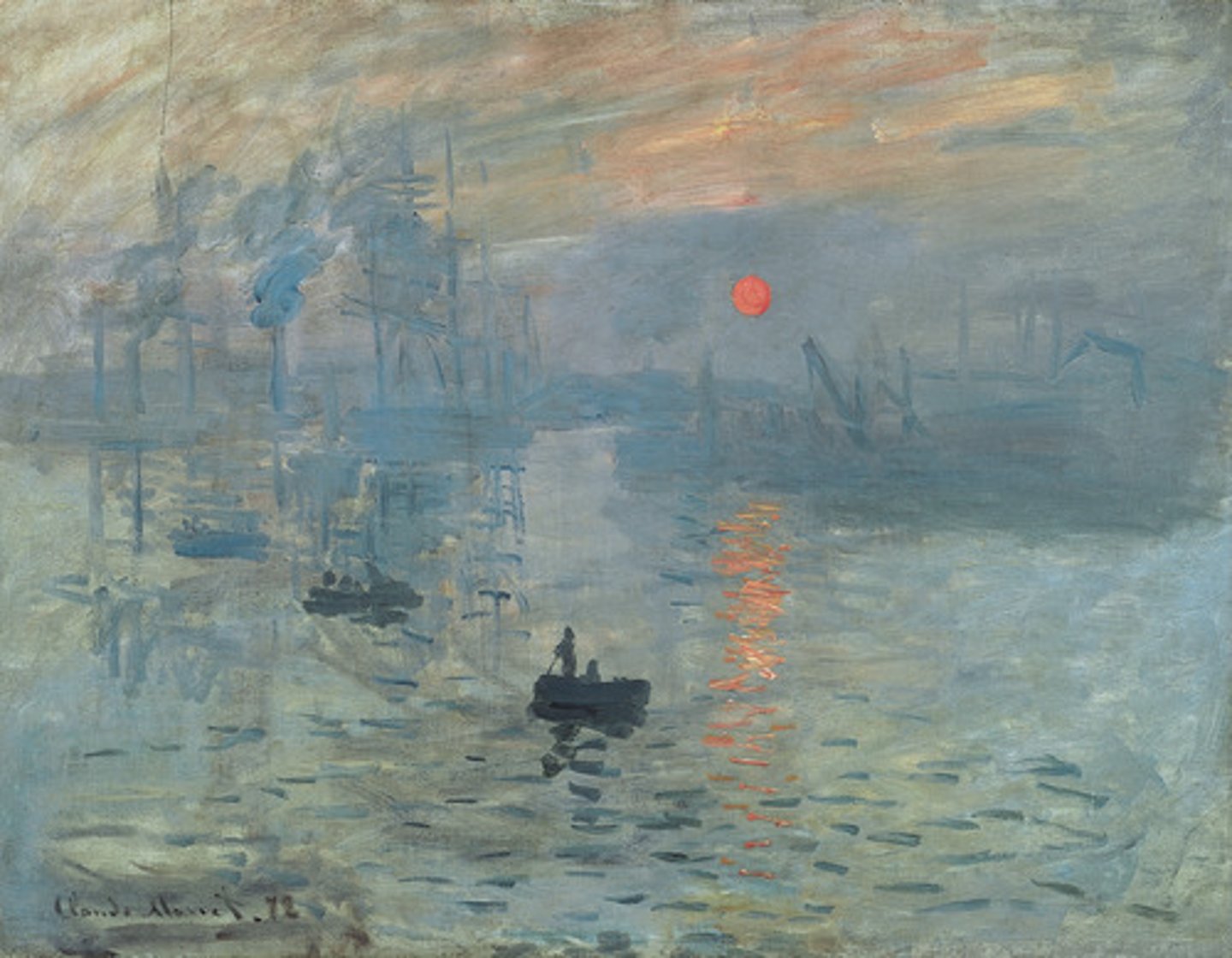Impressionism
1/10
There's no tags or description
Looks like no tags are added yet.
Name | Mastery | Learn | Test | Matching | Spaced |
|---|
No study sessions yet.
11 Terms
Impressionism
An art movement that began in France in the late 19th century, focusing on capturing fleeting moments, light, and atmosphere rather than detailed realism.
Key Goal of Impressionism
To capture a moment in time — the artist's impression of a scene — especially the effects of light and colour.
Light in Impressionism
Artists studied how natural light changes during the day, often painting outdoors (en plein air) to capture real lighting effects.
Use of Colour
Impressionists used pure, vibrant colours side by side instead of mixing them. This created optical blending and a sense of movement and life.
Brushwork
Short, visible brushstrokes that look loose and sketchy up close but form a clear image from afar.
Painting Outdoors (En Plein Air)
Impressionist artists painted outside to directly observe changing light and colours in nature.
Famous Impressionist Artists
Claude Monet, Pierre-Auguste Renoir, Edgar Degas,
Claude Monet
Known for his Water Lilies — studies of light and atmosphere at different times of day.
Loose, visible brushstrokes, bright colours, and a focus on light and momentary impressions rather than detailed realism.
He painted the same subject multiple times (e.g., haystacks, Rouen Cathedral, water lilies) to show how light and weather change its appearance.
Claude Monet- Impression, Sunrise
Loose brush strokes, soft colours, hazy light; captures fleeting dawn, ordinary life, and emotional power of a moment.

Shadows and Reflections
Shadows are often painted with colour (blue, purple, green), not black, to show how light affects everything.
Mood and Emotion
Impressionist art conveys atmosphere and feeling rather than precise detail — how a moment feels, not just how it looks.